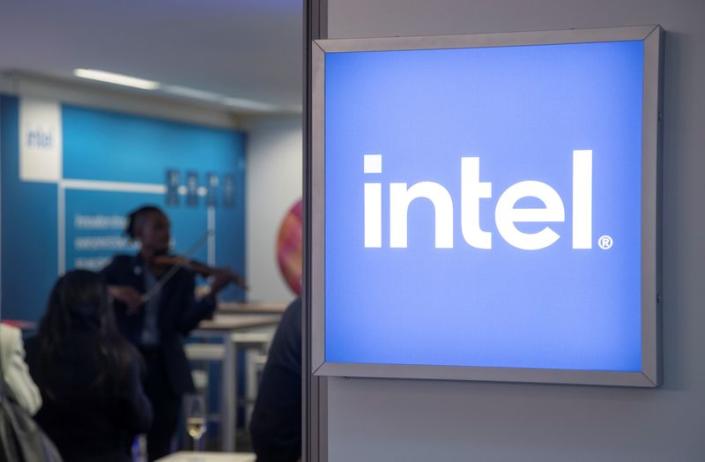A cybersecurity group with links to the Chinese state has called for a security review of products sold by Intel in the country, saying the US chipmaker has “constantly harmed” China.
In a post on WeChat, the Cybersecurity Association of China (CSAC) said on Wednesday, that “Intel products should be systematically investigated for cybersecurity risks,” due to their “frequent vulnerabilities and high failure rates.”
“It can be said that Intel has made a lot of money in China, but the company has continued to do things that undermine China’s interests and threaten China’s national security,” CSAC wrote in the post.
Also on AF: China Pushing For a Bigger Say on Prices of Global Metals
It also made note of security vulnerabilities and stability issues previously found in Intel CPUs in the US. CSAC raised concerns about an Intel module capable of remotely managing user devices and “hidden backdoors” that the firm had allegedly “embedded in almost all its CPUs since 2008.”
The group alleged those “backdoors” gave US National Security Agency the ability to monitor Intel systems across the globe, and were effectively “a huge security threat to the critical information infrastructure of countries around the world, including China.”
While CSAS is not a government body, the group has close ties to the Chinese state. Given the extent of its accusations against Intel, this could trigger a security review from the Cyberspace Administration of China (CAC).
The powerful Chinese cyberspace regulator was behind the failed network security review last year of another US chipmaker: Micron Technology.
Following the review CAC barred domestic operators of key infrastructure from buying products made by Micron.
Tech war retaliation
China was Intel’s largest market in 2023, accounting for 27% of its revenue. But the chipmaker — like its other US peers — is under increasing pressure from Washington to stop exports of top-tier tech to China.
That has led to retaliatory moves from Beijing, which, earlier this year, implemented guidelines to phase out microprocessors made by Intel and AMD, another US chipmaker, from government personal computers and servers.
The tech war between the world’s two biggest economies has only intensified since, with US doing all it can to boost domestic semiconductor output and reduce reliance on China with the CHIPS and Science Act.
In its post, CSAS claimed Intel “was the biggest beneficiary” of the act.
“In order to please the US government, Intel has actively taken a stance to suppress China,” CSAS alleged.
Intel did not immediately respond to a Reuters request for comment. The company’s shares were down 2.7% in US premarket trading.
Xi’s call for ‘friendship’
CSAS’ call came on the heels of a statement from Chinese president Xi Jinping, calling for “friendship” and “win-win cooperation” between Washington and Beijing,
“China is willing to be a partner and friend with the United States,” Xi said in a letter to the 2024 annual awards dinner of the National Committee on US-China Relations, according to state media.
Reiterating comments he made this time around last year, Xi said, “China-US ties are one of the world’s most important bilateral relations” with a potential to affect the “future of mankind.”
“China has always handled China-US relations in accordance with the principles of mutual respect, peaceful coexistence and win-win cooperation, and has always believed that the success of China and the United States is an opportunity for each other,” Xi said.
Xi’s statement came as US-China remain at odds over national security concerns and ongoing trade and geopolitical spats.
Both countries have called for cooperation and peace over the past year, while also saying their willingness to cooperate will not stop them from making moves to protect their commerce and security.
- Reuters, with additional inputs from Vishakha Saxena
Also read:
China’s Retaliatory Bans Could Cost US Tech Giants Billions
US Lawmakers’ Fury Over Huawei’s Intel AI Chip-Powered Laptop
Beijing’s Push to Dump Foreign Tech on Display at China Chip Fair
US May Sanction China’s DRAM Chip Giants Next, Analyst Warns
Japan Nears China Chip Curbs Deal With ‘Bad Cop, Very Bad Cop’ US
US Pressing Korean Chipmakers For More China Chip Curbs
US Push to Curb China Chip Tech Economically Motivated: ASML CEO
Threat of More Chip Curbs Spurs Warnings on China Innovation
Bumps Ahead For Huawei in Race to Rival Nvidia With New AI Chip
China Threatens to Cut Off ASML Over New US Chip Curbs
Huawei, SMIC Set to Defy US Sanctions With 5nm Chips: FT
























